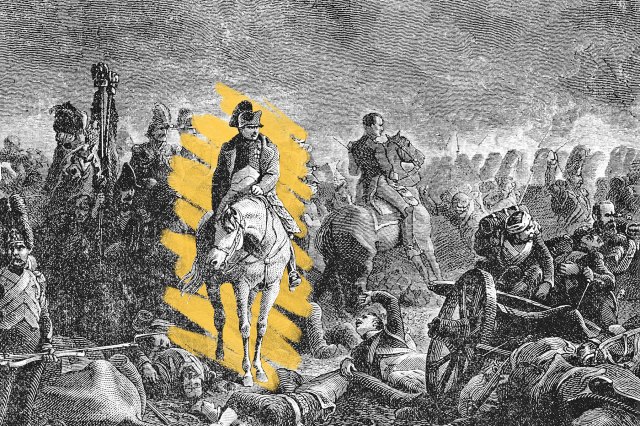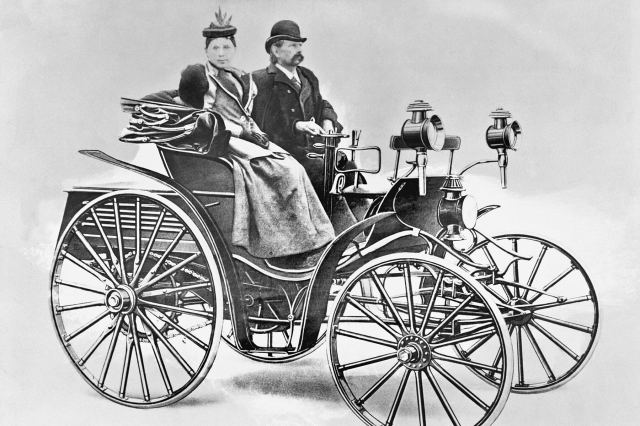 |
The Battle of Waterloo didn't take place in Waterloo. |
World History |
 |
| |
| Although the significance of the battle became apparent when Napoleon abdicated a few days later, it took some time for a consensus name to emerge in the aftermath. The defeated French called it the "Battle of Mont Saint-Jean," after the Braine-l'Alleud hill that had seen the day's fiercest clashes. The Prussians favored "Battle of La Belle Alliance," for the nearby farmhouse where Blücher and Wellington allegedly met to celebrate their triumph. But the ultimate namesake turned out to be the picturesque town that had hosted the duke the night before the fighting, and from where he sent the report of his crowning achievement the following day. It's true that history is written by the victors, and in this case, the name "Waterloo" may have contributed to the battle's enduring legacy. After all, "meeting your Braine-l'Alleud" doesn't quite have the same ring to it. | |
 | |
 | |||||||||
By the Numbers | |||||||||
| |||||||||
| |||||||||
 | |||||||||
| |||||||||
A volcanic eruption may have contributed to Napoleon's downfall. | |||||||||
| Many reasons have been offered in explanation of Napoleon's final battlefield defeat, from the will of God cited in Victor Hugo's Les Misérables to the soggy grounds that slowed his artillery push. And according to a study published in the August 2018 edition of Geology, powerful natural forces may indeed have helped shift the balance of power in 19th-century Europe. Using computer modeling, study author Matthew J. Genge showed that electrically charged volcanic ash can be projected into the sky higher than previously thought, and spur cloud formation in the ionosphere. Genge also noted that the April 1815 eruption of Indonesia's Mount Tambora, a cataclysmic event that led to 1816's "year without a summer," apparently also produced more immediate effects, such as the rainy weather that blanketed Europe in late spring in 1815. If unusually wet conditions did impede Napoleon's military strategy, then perhaps Hugo was on to something when he proposed that it took more than the combined might of Wellington and Blücher's forces to stop the legendary French general. | |||||||||
 | |||
Recommended Reading | |||
 | |||
| | |||
 | |||
| | |||
| + Load more | |||
| |||||||||
| 700 N Colorado Blvd, #513, Denver, CO 80206 | |||||||||
|





No comments:
Post a Comment